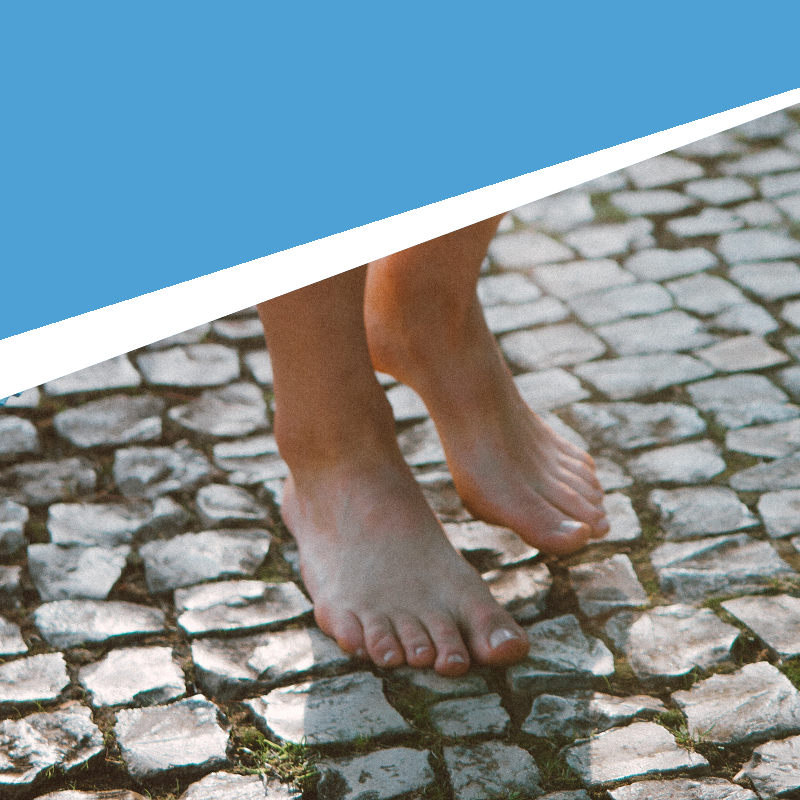Sesamoiditis
Is a common pain that affects the forefoot usually located just behind the big toe on the ball of the foot. Sesamoiditis generally means an irritation of the sesamoid bones, which are two tiny bones within the tendons that run to the big toe. Every time you push off when walking or running the sesamoids are involved and eventually they can become irritated, even fractured, because the bones are located within tendons, and thus the tendons can become inflamed as well.
The picture below shows where the sesamoids are located and where you would experience pain:
Cause
- The pain usually begins with a mild ache and increases gradually as the aggravating activity is continued, which may progress to an intense throbbing pain. In a lot of cases there is little or no bruising present.
- One of the largest reasons for sesamoiditis is increased activity suddenly, so it might be you have decided its time to get fit and have jumped straight into it, or you have increased the intensity or slightly changed your workout to run or exercise on different surfaces under foot.
- If you have a reduced fatty padding on the balls of your feet, so there is limited shock absorption there
- If you have in-appropriate footwear, in the same way if you have reduced fatty padding, if you dont have a cushioned trainer then that will also contribute to sesamoiditis.
- Finally if you have a high arched foot then a lot of pressure will travel through the ball of your foot.
Sesamoiditis Treatment
- Minor cases of sesamoiditis warrant a strict period of rest, along with the use of a modified orthoses to reduce pressure away from the affected area, a change in footwear may also be warranted.
- Trainers may also be adapted to offload the pressures away from the foot also.
- The big toe may also be strapped up to prevent any force going through it and also prevent the tendons from working which may be inflamed.
- Of course reduce or stop activity.
- Icing the area and using topical anti-inflammatories will also take down any swelling if there is some present
- While the injury is healing women should wear flat shoes to prevent increased pressure going through the foot.
- If the foot has a high arch then this may be needed to be addressed with orthotics
- If none of the above helps the pain then it will be useful to get x-rays done of the affected area to rule out any other bone involvement in the area.
Please don’t hesitate to give us a call on 01403 276 272 or contact us to discuss any problems you are having with pain under your big toe (sesamoiditis).



